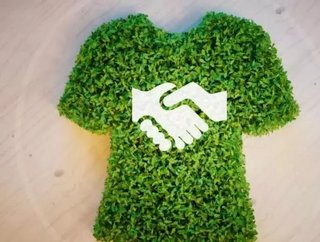Tengri named in the Sustainia100 2016 guide

Tengri, the British fashion brand and noble yarn technology specialist, has been named one of the leading 100 sustainable global initiatives in the Sustainia100 list.
The annual Sustainia100 selects the top 100 worldwide innovative sustainability solutions, and Tengri was selected by a panel of independent sustainability experts from various international research organisations.
London-based Tengri launched in 2014to bring noble yak fibres to the forefront of the fashion and textile industries. The brand pioneers a ‘fairshare’ business model and supports over 1,500 nomadic herder families in Mongolia, who directly supply Tengri with hand-combed fibres from the indigenous and semi-wild Khangai yak species. The company aims to make a significant impact on the preservation of the natural landscapes of Mongolia, protecting its wildlife and supporting the nomadic herders’ way of life.
Twenty five percent of most woollen fibres are introduced to the industry as yarns and woven into fabrics, with approximately 75 percent ending up as by-product waste. In addition to premium fibres, Tengri imports all waste fibres to the UK and is working on further developments to make use of this fibre in fashion, luxury interiors, soft furnishings and technical outdoor apparel. By working with an indigenous breed and a semi-wild species, the yak’s existence in the landscape has less impact on biodiversity than goats and sheep, which are non-indigenous and domesticated animal species, introduced and bred for their fibres.
Nancy Johnston, Founder and CEO of Tengri, commented: “I’m so deeply honoured that Tengri has been recognised as one of the world’s top 100 sustainable solutions to some of the most difficult challenges and to contribute to the UN's Sustainable Development Goals. I launched Tengri having lived with Mongolian herder families, experiencing the challenges that put pressure on their lives and livelihoods. I saw an opportunity where a collective movement of design, fashion, ethics, business, environmental activism and individual consumer choice could come together to do good and make a difference.
"The fashion industry is experiencing, first-hand, the detrimental impact that economic and environmental challenges are having on the source of much of its premium raw materials. The current landscape is unsustainable and I am proud to be spearheading systemic change.”
Follow @ManufacturingGL and @NellWalkerMG
- GE Vernova moves to Electrify and Decarbonise the WorldTechnology
- GTK: IoT, Sustainability & Touchscreen Tech in ManufacturingAI & Automation
- The Impact of NCSA on Manufacturing & the Supply ChainProcurement & Supply Chain
- Grundfos' Sustainable Manufacturing & Energy EfficiencySustainability & ESG






